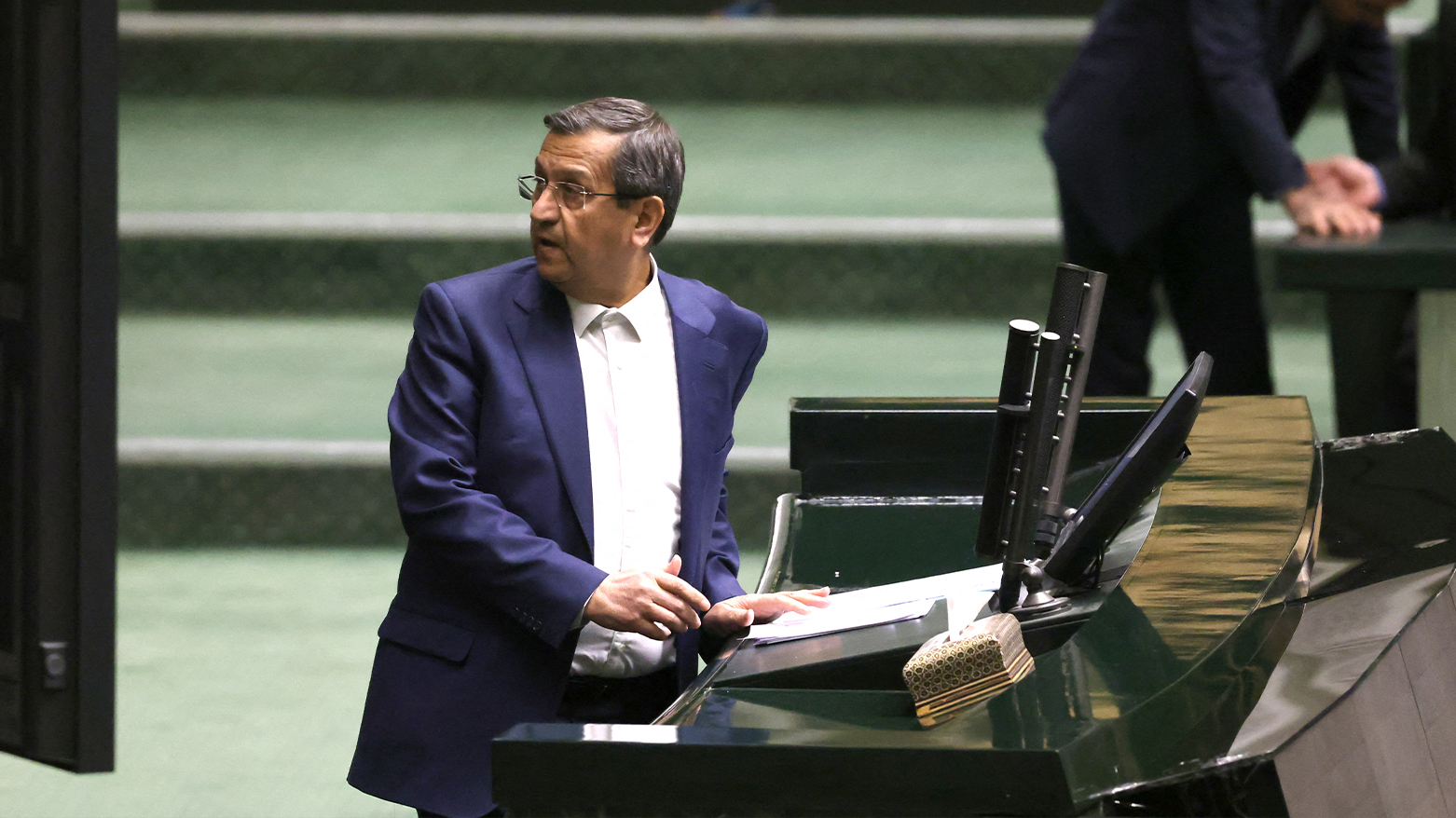Iranian Parliament Sack Finance Minister Hemmati
The decision, which saw 182 votes in favor, comes amid growing concerns over inflation, currency devaluation, and economic mismanagement.

ERBIL (Kurdistan24) – In a move reflecting mounting economic woes in Iran, the Iranian Parliament removed Economy and Finance Minister Abdolnaser Hemmati from office following a vote of no confidence.
The decision, which saw 182 votes in favor, comes amid growing concerns over inflation, currency devaluation, and economic mismanagement.
The session, attended by Iranian President Masoud Pezeshkian, was dedicated to scrutinizing the country’s economic situation and holding Hemmati accountable for perceived failures in financial policy. During the heated discussions, lawmakers expressed their dissatisfaction with the current economic trajectory, citing rising inflation and the depreciation of the Iranian toman as key issues.
Despite a staunch defense from President Pezeshkian, Hemmati was ultimately unable to retain parliamentary support.
According to the final vote tally, 182 members of parliament voted to dismiss the finance minister, while 89 opposed his removal. There was also one abstention and one invalid vote, sealing Hemmati’s fate after months of criticism from legislators.
Hemmati’s dismissal marks a significant shift in the Pezeshkian administration, which has faced considerable pressure to implement economic reforms since taking office approximately six months ago. Lawmakers have been increasingly vocal in their demands for leadership change, arguing that Hemmati’s policies failed to curb inflation or stabilize the country’s struggling currency.
Chronic Inflation and Sanctions: A Deep-Rooted Economic Crisis
“The most important problem of the country's economy is inflation, and that is chronic inflation, which has plagued our economy for years,” Hemmati had acknowledged prior to his dismissal.
Iran’s economy has been battered by decades of US-led sanctions, with double-digit inflation significantly increasing consumer prices since Washington withdrew from the landmark 2015 nuclear deal in 2018.
Formally known as the Joint Comprehensive Plan of Action (JCPOA), the agreement had provided sanctions relief and a return of Western investments in exchange for strict limits on Iran’s nuclear activities. However, under former US President Donald Trump, the US reinstated the so-called “maximum pressure” policy, imposing harsher restrictions on Iran while simultaneously calling for new negotiations.
Despite Trump’s return to the White House in January 2025 and his push for renewed diplomatic talks, Iran’s Supreme Leader Ayatollah Ali Khamenei rejected the idea of engaging with the US altogether.
“I personally believe in dialogue, and I will continue to do so,” Pezeshkian stated during the impeachment session. “However, we will stand by the position the supreme leader has taken regarding America until the end, and we will not do anything else.”
Iran has been grappling with economic instability for years, characterized by high inflation, soaring unemployment, and a weakened currency that heavily impacts ordinary citizens.
Since 2018, the country has struggled under severe economic pressure, with annual inflation exceeding 30 percent since 2019, according to World Bank data. In 2023, inflation spiked to an alarming 44 percent, worsening living conditions for millions of Iranians.
Hemmati’s removal follows a precedent of economic officials being dismissed due to poor financial management. In 2018, then-Economy Minister Masoud Karbasian lost a vote of confidence during an impeachment session over deteriorating economic conditions.
More recently, in April 2023, lawmakers voted to remove Industry Minister Reza Fatemi Amin in response to a surge in prices linked to international sanctions.
According to Iran’s constitution, Hemmati’s dismissal is effective immediately. A caretaker finance minister will be appointed until President Pezeshkian’s administration selects a permanent replacement. The new appointee will face the daunting task of restoring confidence in Iran’s financial policies, tackling inflation, and stabilizing the country’s fragile economy.
As Iran navigates ongoing domestic and international economic challenges, all eyes will be on Pezeshkian’s choice for Hemmati’s successor and whether his administration can implement the much-needed reforms to ease financial hardships.